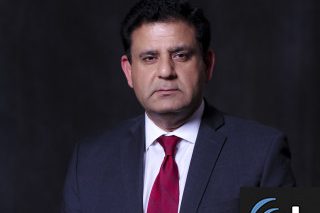HealthCare Theory and Planning 101: The major driver of excessive cost and poor quality medical care in the United States is the misalignment of financial incentives. In a fee-for-service environment doctors do more exams, order redundant tests, and perform unneeded treatments, because the more they do, the more they are paid. You eat what you kill, even if it is the patient.
At the heart of healthcare reform is the alignment of incentives. This means either financially punishing docs for excessive, out of date, poor quality care, or increasing their income when they do the “right” thing. The carrot and stick approach to re-educating irresponsible physicians. The future rides on the idea that if you fix the dollars, you will fix the docs. They are wrong.
Corrupt: having a willingness to act dishonestly in return for money. If it were true that physicians compromise human health to enhance their own incomes, then such a horrendous callous neglect, deliberately or not, of their oath and profession would be the very definition of corruption. Hippocratic would be purely hypocritical.
The problem with this idea, on which healthcare pundits hang tomorrow’s patient care, is that it ignores the reality of how medicine is actually practiced by the average doctor.
In my entire career I have never made a single medical decision based on how much money it would mean for me. Please note that I said 100% never. In addition, I have never, not once, heard a physician justify a medical recommendation by the need to line their own pockets. It is not that there is a secret rule never to mention such an abomination and betrayal; it is simply not how doctors make decisions.
I am not so naive to ignore or discount that there are a few greedy morally starved bad actors that pathetically call themselves physicians, but they are uncommon and must be ostracized and exiled, not addressed with pathetic incentives. You cannot fix evil with good works. I also understand that there are sections of the healthcare industry that are heavily profit motivated. However, the vast majority of docs, while they desire and deserve a solid income, do not consider their own welfare when deciding how to treat patients.
Consider:
–No medical school lecture has ever discussed profit as the primary or secondary goal of individual medical planning.
– No authoritative medical research article ever recommends an intervention based on making more money.
-No medical conference, tumor board, M&M or data discussion ever supported a higher cost, higher margin, poorer outcome therapy, simply because it was a chance to make big bucks
-Of all the professional disagreements I have ever had or heard, none were about trying to choose the most profitable therapy over the benefit of the patient.
-No multiple choice examination answer was ever “A and C”, where A is a treatment and C is the largest amount to bill.
-Medical education does not even contain a class on economics, financial planning, investments or double-entry bookkeeping.
Doctors are motivated constantly by the fear they will make mistakes and by guilt from the mistakes they have already made. They do their best for their friends, family and neighbors, patients all. They focus on healing with the intention of helping their fellowman. Notoriously ignorant about budgets and finance, trained to ignore cost, they may do too much and spend too much, but it is because the bottom line, anyone’s bottom line, is simply not on their radar.
While a small percentage of minor individual health decisions may be subtlety influenced by reimbursement, the vast majority are not. Therefore, if I am correct, if riches are not a primary motivation, then “aligning incentives,” paying doctors more to do a better job, will fail to control costs or insure quality. A “reimburse for quality strategy” will have marginal success. Doctors will continue to make the big decisions, which they believe produce the best result, regardless of what it does to their income.
Doctors are not corrupt. Paying them more to modify that which they have already committed their lives will fail. Therefore, how should we “fix” doctors?
The answer is data. Doctors respond to objective high quality information about benefits, side effects and net results. Physicians wish to give perfect care. Therefore, if they are told that a test is redundant or useless, a treatment too toxic or that the most effective remedy is the safest and simplest, docs will change and implement. If you give physicians actionable feedback about the results of their own practice, they will listen, learn and act. Doctors are about doing the right thing. To change their practice you need only to show them what that is.
Some will say that I am ignorant to the reality of human nature. I say profit based decision making is foreign to a profession whose primary drive is altruism, whose discipline is science, whose love is the art of caring and who are reminded everyday of the frailty of life and their fellowman. Corrupt that motivation and reform efforts will fail.







21 Comments